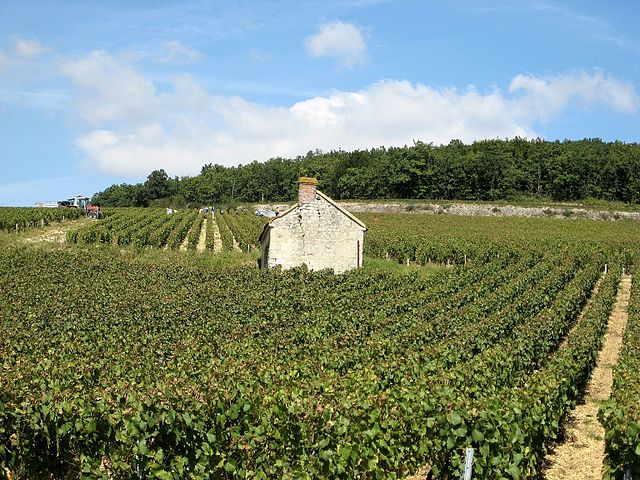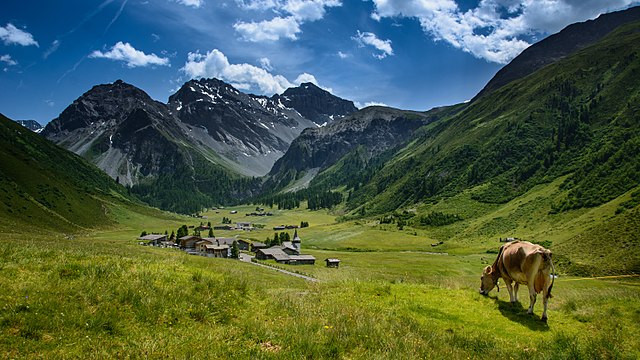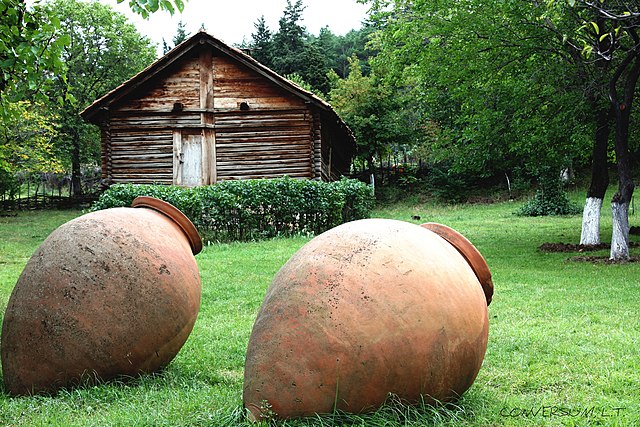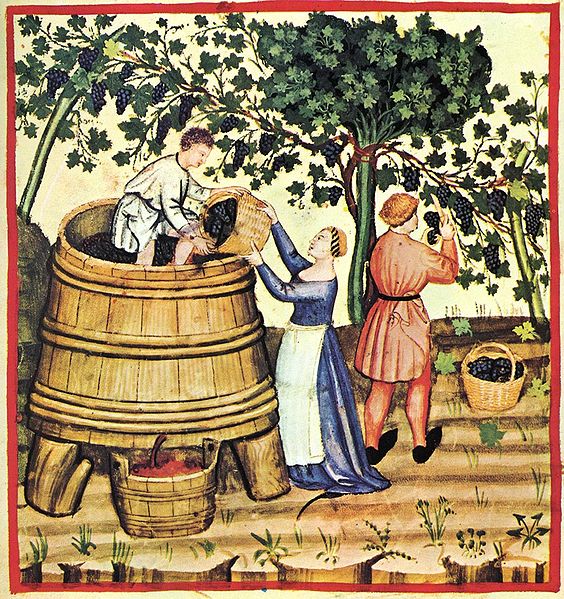Terroir is a French term used to describe the environmental factors that affect a crop's phenotype, including unique environment contexts, farming practices and a crop's specific growth habitat. Collectively, these contextual characteristics are said to have a character; terroir also refers to this character.
The steep slope, soil quality, and influence of the nearby Mosel river distinguish the terroir of this German wine region.
While the concept of terroir is not specific to Burgundy, the examples of Burgundy wine from places like the Chablis premier cru Fourchaume are terroir-driven.
Pasture in the Alps. Alp cheeses are characterised by the variety of herbs and flowers found at higher elevations.
Wine is an alcoholic drink made from fermented fruit. Yeast consumes the sugar in the fruit and converts it to ethanol and carbon dioxide, releasing heat in the process. Wine is most often made from grapes, and the term "wine" generally refers to grape wine when used without any qualification. Even so, wine can be made from a variety of fruit crops, including plum, cherry, pomegranate, blueberry, currant, and elderberry.
Glasses of red and white wine
Georgian clay vessels, historically used in wine making.
The Areni-1 cave in Armenia is home to the world's oldest known winery.
Pressing wine after the harvest; Tacuinum Sanitatis, 14th century







